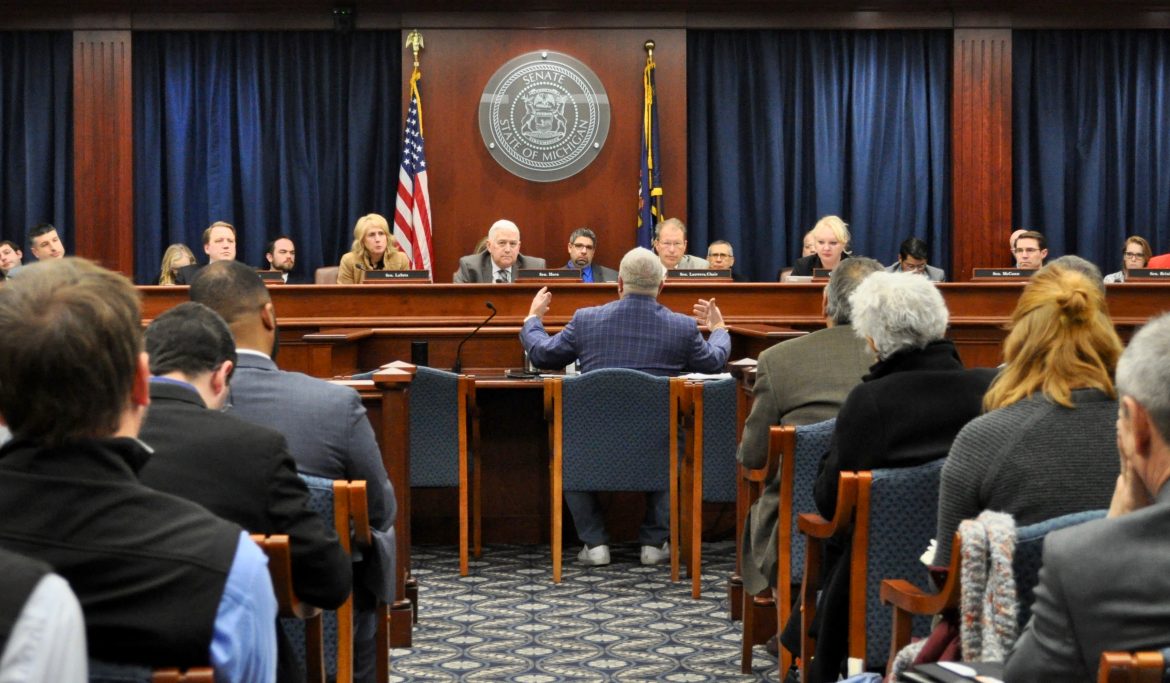On Feb. 11, Michigan Senate Committee on Energy and Technology held its first hearing for testimonials on a set of three bills collectively called Powering Michigan Forward.
This bipartisan package of bills would remove the 1% cap limiting the amount of renewable energy utilities are allowed to purchase from private entities.
Michigan is currently the only state in the U.S. with a distributed generation program that has a cap of any size. With the solar industry growing rapidly due to consumers’ desire to generate their own low-cost, onsite energy, Michigan’s cap on renewable energy is approaching its limit.
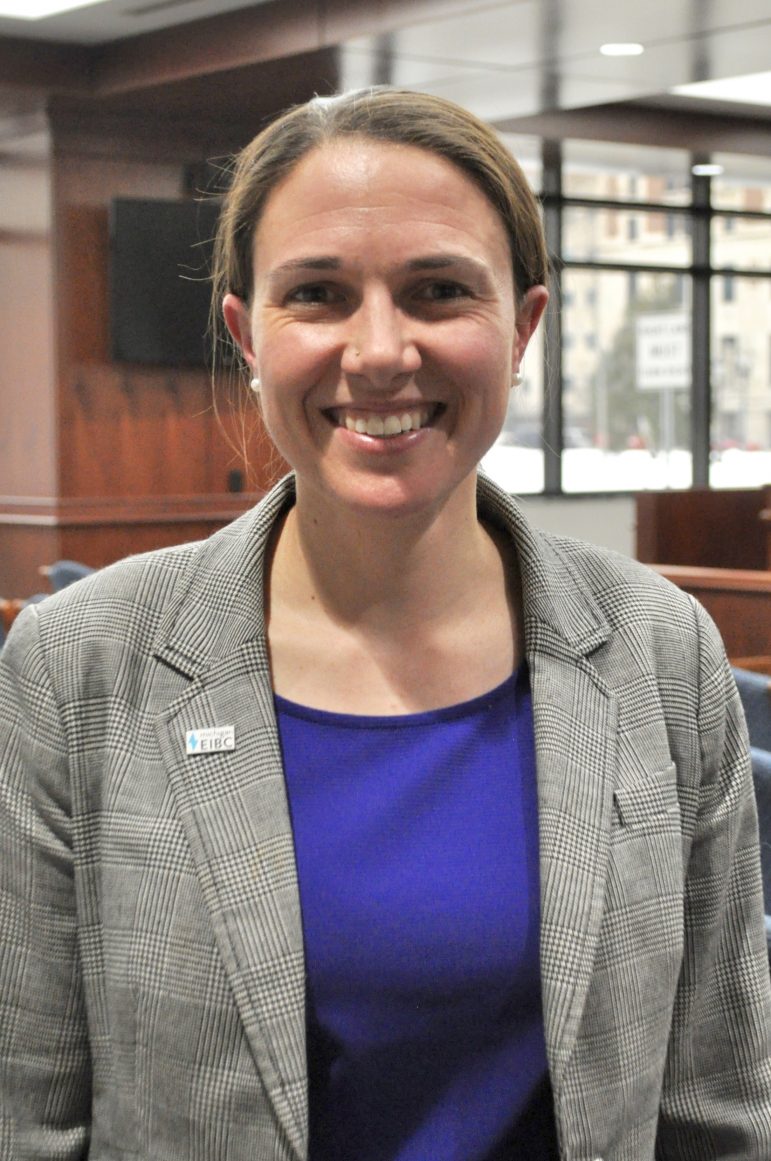
Eryn Ho
Laura Sherman, president of the Michigan Energy Innovation Business CouncilLaura Sherman, president of the Michigan Energy Innovation Business Council, represents 120 companies ranging from distributive solar companies to energy efficiency businesses. Sherman expressed concerns that businesses and homeowners wanting to install solar will have to go off-grid, which most individuals cannot manage.
“In the 2008 legislation, we set this cap on the distributive generation program. Once we get to that cap the utilities don’t have to accept your application,” Sherman said, “So legally you can’t install it if they won’t let you, and they won’t let you once we get to that cap because they don’t have to.”
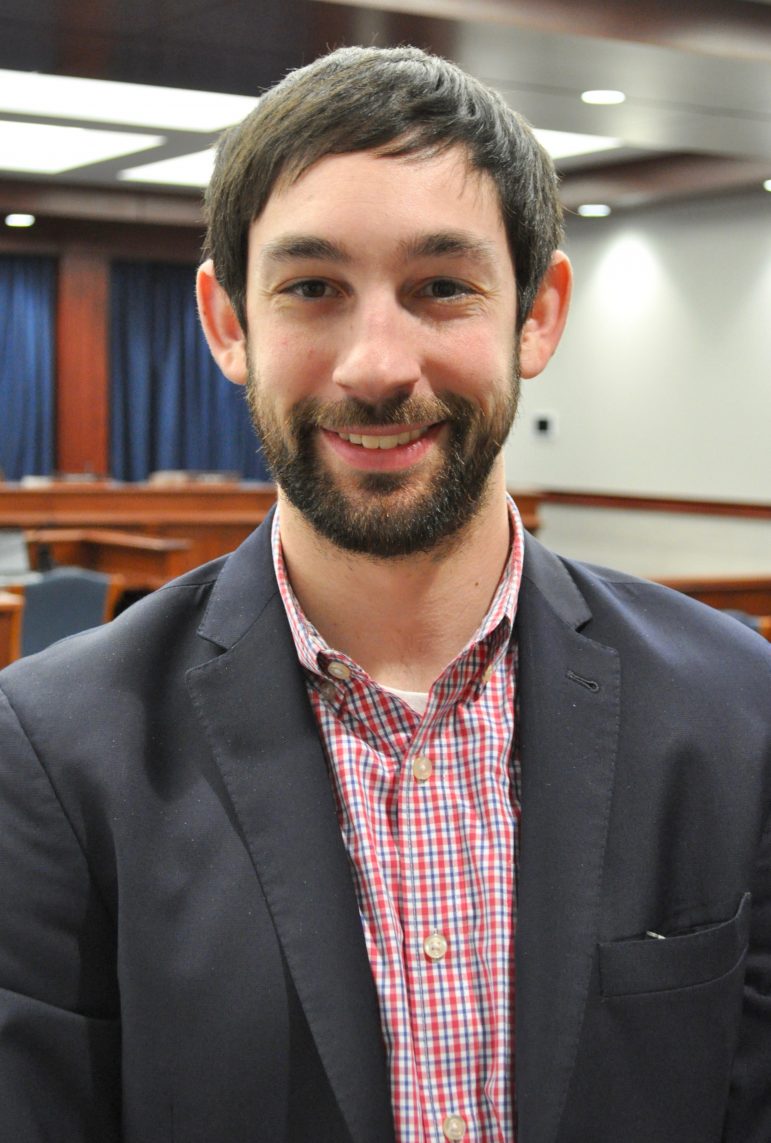
Eryn Ho
Mike Berkowitz, representative of the Beyond Coal Campaign for the Sierra ClubThe removal of the cap would not change safety requirements and regulations required to install renewable energy, but would take off the legislative limits that are currently in place.
Representative of the Beyond Coal Campaign for the Sierra Club, Mike Berkowitz, explained why these bills are especially important to his organization.
“Climate change is the biggest, most impounding issue that we are dealing with in the environmental community. It impacts everybody and it has a disproportionate impact on communities of color, diverse race, socioeconomic diversity, so this is part of a solution to fixing those problems, ”said Berkowitz, “We feel like it is a civil right to be able to create your own energy and not be dependent on a corporate monopoly utility company.”
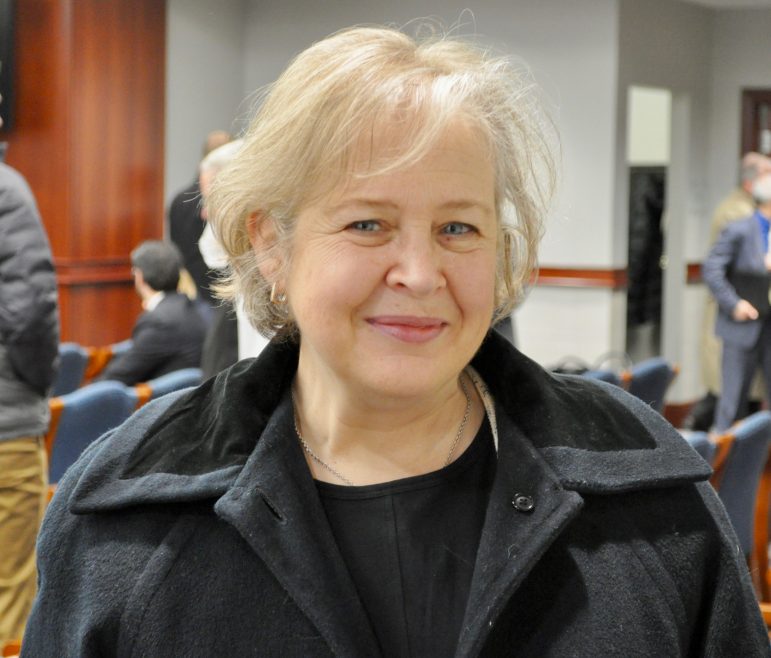
Eryn Ho
Lisa Patrell, Co-founder of Washtenaw 350Lisa Patrell, Co-founder of Washtenaw 350, said electrification is one strategy many climate activists are organizing behind to reduce greenhouse gas emissions. She noted that the use of electric vehicles will rise around the nation, but simply buying an electric car is not enough to reduce carbon usage.
“By buying an electric car, all you’ve done is transfer your carbon footprint from your tailpipe to the utilities energy plant,” Patrell said, “The only way to truly make a reduction in that carbon footprint is to be assured that your electrical vehicles are being recharged from a green renewable source.”
Patrell said these bills are a critical adaptation of infrastructure in the state.
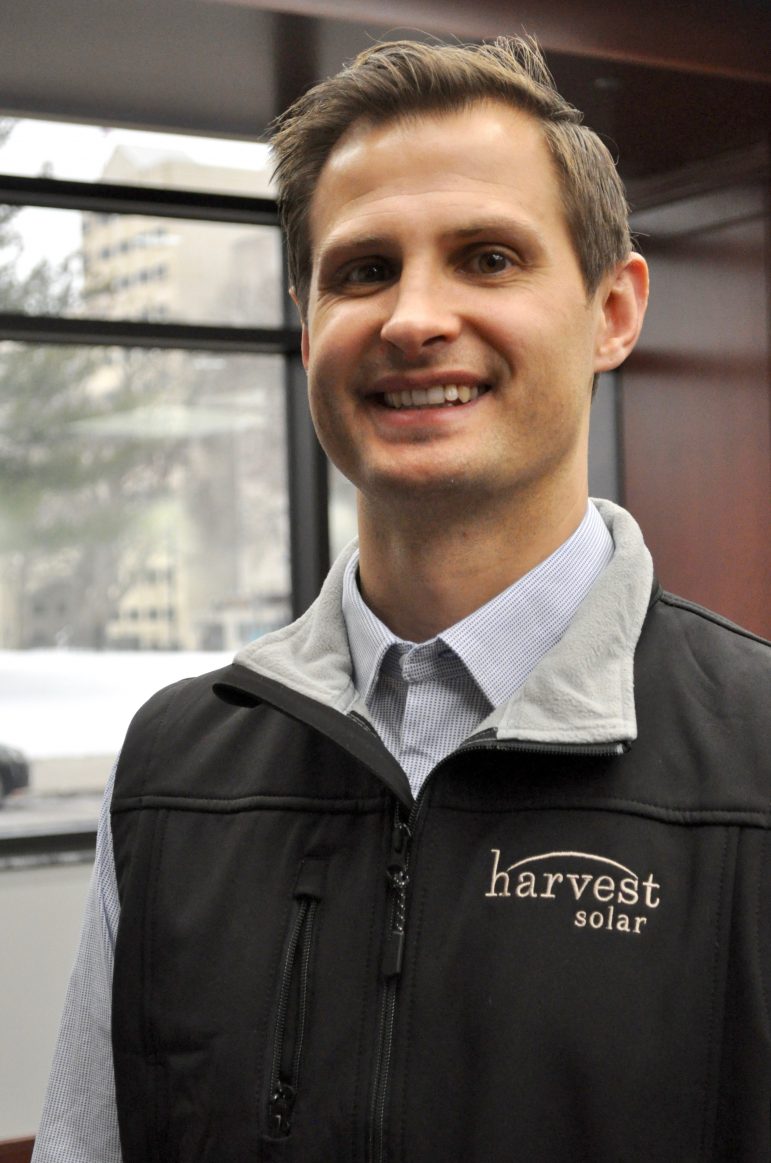
Eryn Ho
Jordan Tallman, director of business development for Harvest SolarJordan Tallman, director of business development for Harvest Solar, has been working in solar for the past 10 years in multiple states including Colorado, California and now Michigan.
If the cap is not removed, it will dramatically affect the business and it would potentially have to reallocate employees to other states that are more solar friendly, said Tallman, “There’s over 5,000 jobs in Michigan that are solar specific and that would dramatically reduce the overall jobs that are available here.”
Note: The last paragraph was edited March 5, 2020, to more accurately reflect the perspective of Harvest Solar.
